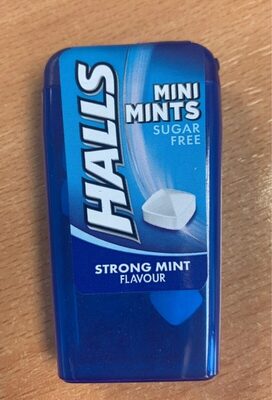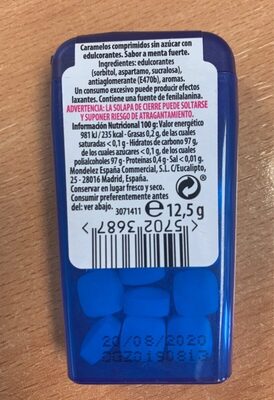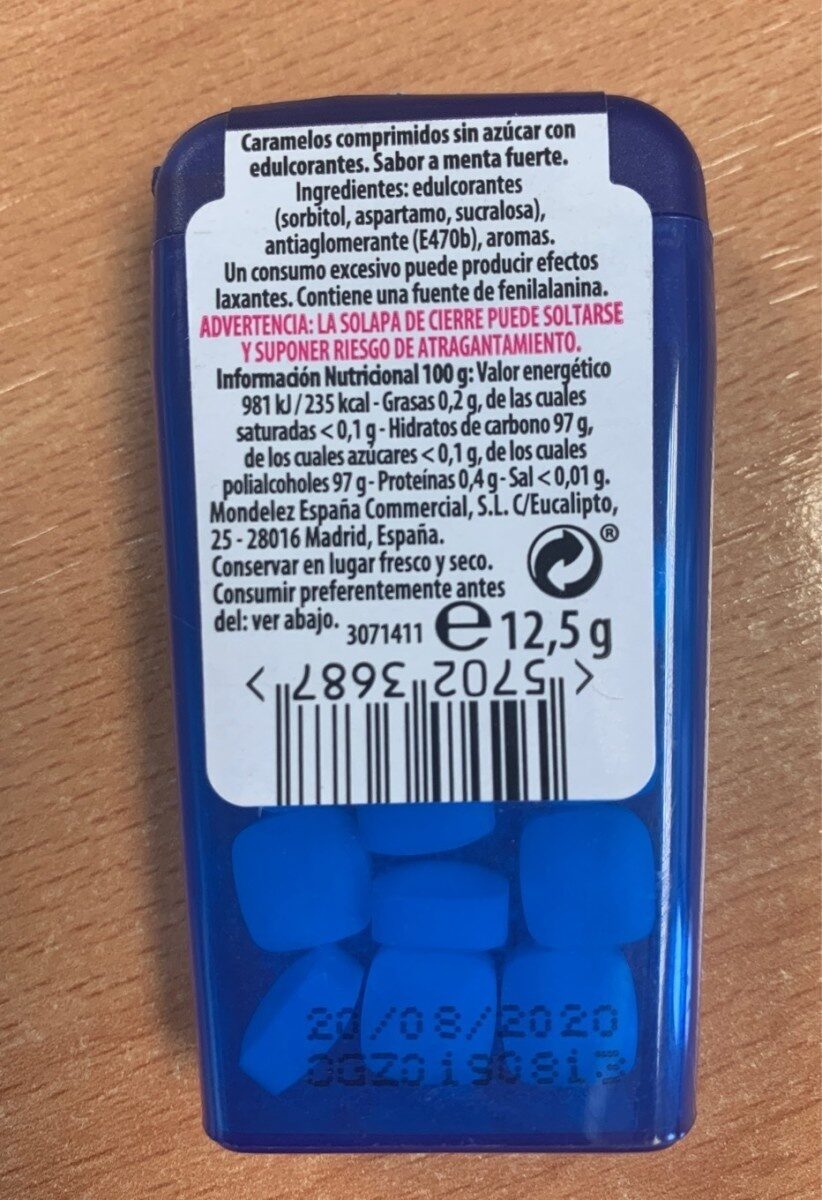Halls Mini Mints Sugar Free - 12.5 g
This product page is not complete. You can help to complete it by editing it and adding more data from the photos we have, or by taking more photos using the app for Android or iPhone/iPad. Thank you!
×
Barcode: 57023687
Quantity: 12.5 g
Packaging: Plastic
Brands: Halls
Categories: Snacks, Sweet snacks, Confectioneries, Caramels
Labels, certifications, awards:
Green Dot
Countries where sold: Spain
Matching with your preferences
Environment
Packaging
Transportation
Report a problem
Data sources
Product added on by elcoco
Last edit of product page on by spotter.
Product page also edited by elcoco.1665d3225da0ff004f9bfb27758fd69b, kiliweb, musarana, packbot, roboto-app, saisa, yuka.Wko0S0c1c2ppTWdQcThJNDBEenR3L0JrNUllU0JsR0tGOVpMSUE9PQ, yuka.sY2b0xO6T85zoF3NwEKvlk5cbMLZoSuVCTHkqFPTmfSoPrvTP4B73oTeNqg.
If the data is incomplete or incorrect, you can complete or correct it by editing this page.









